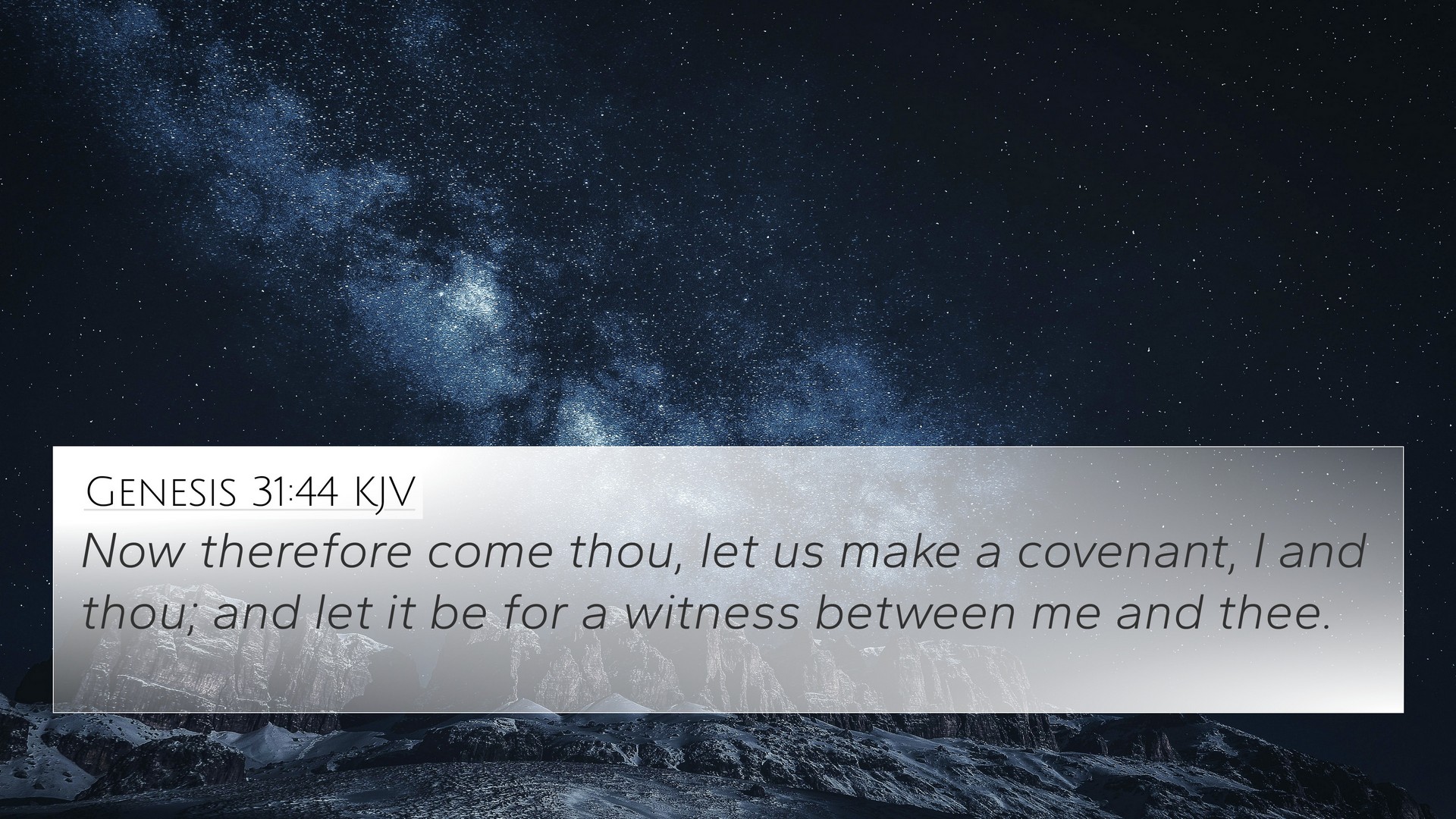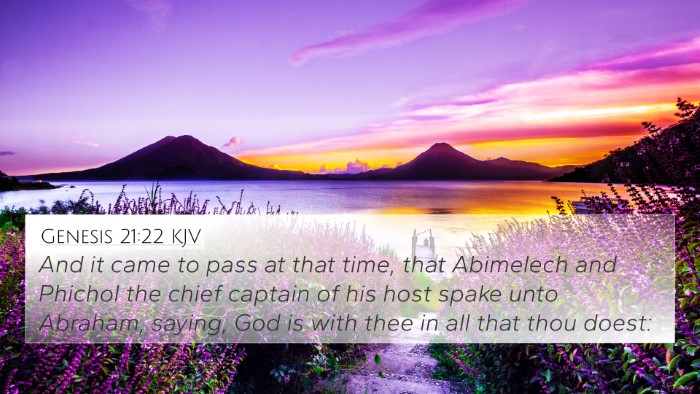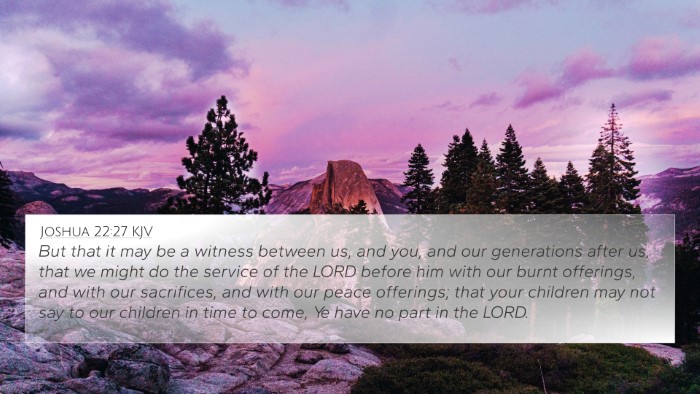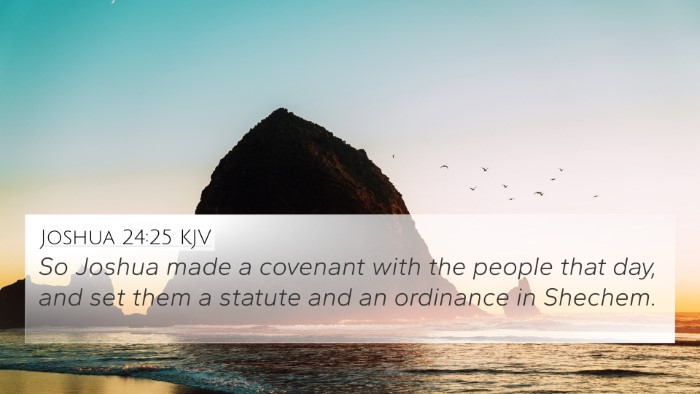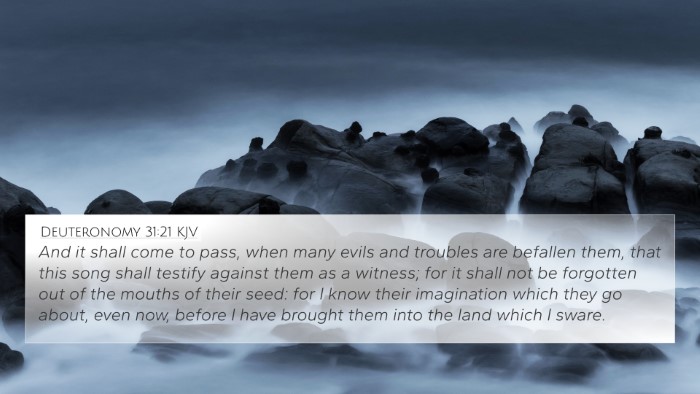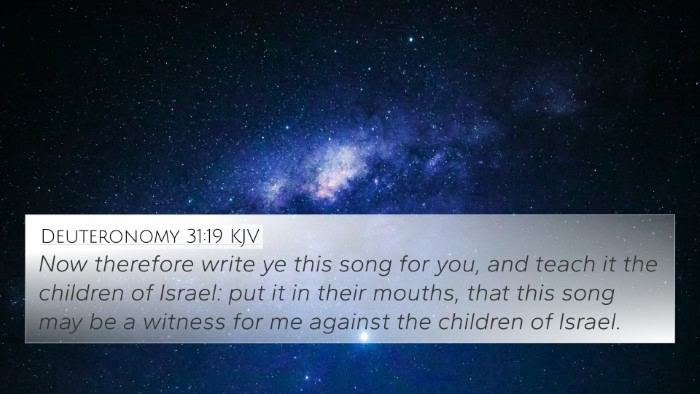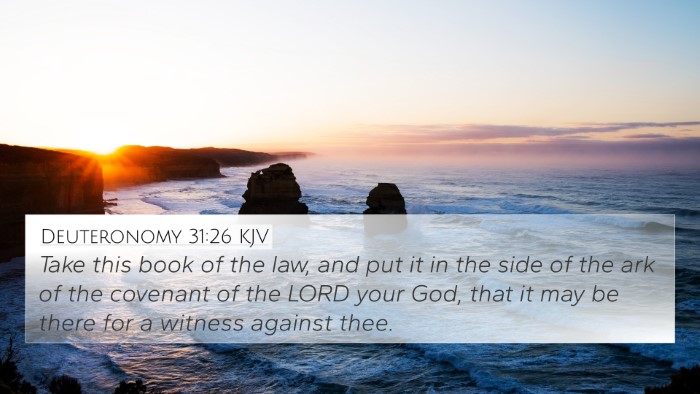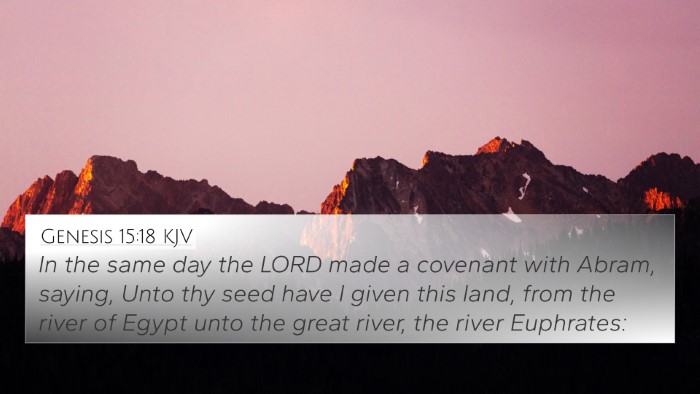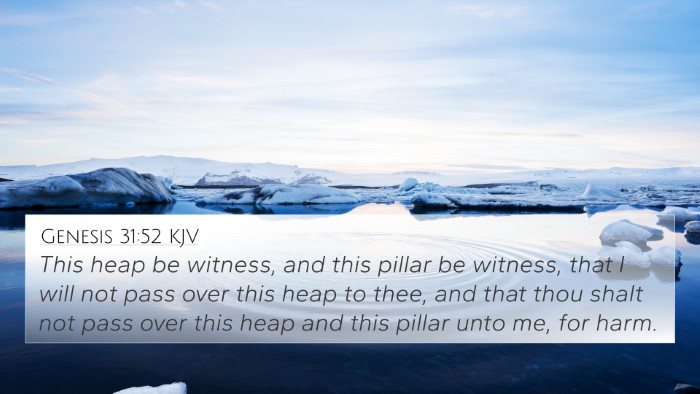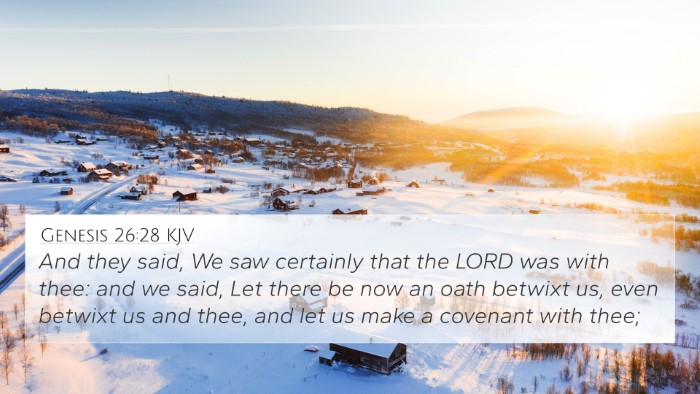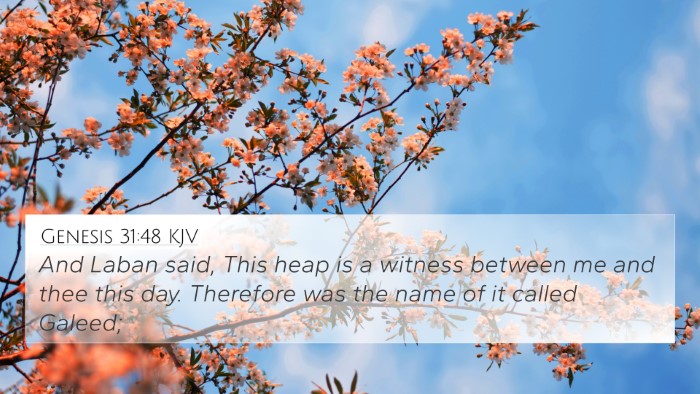Understanding Genesis 31:44
Genesis 31:44: “Now therefore come thou, let us make a covenant, I and thou; and let it be for a witness between me and thee.”
This verse marks a significant moment in the narrative between Jacob and Laban, encapsulating themes of covenant, reconciliation, and the importance of establishing boundaries in relationships. The intention here is to formalize a peaceful coexistence through a solemn agreement.
Summary of Interpretations
The public domain commentaries shed light on various aspects of this verse:
- Matthew Henry: Henry emphasizes the necessity of making a covenant as a way to secure peace and ensure mutual respect after a period of tension. This act symbolizes a transition from hostilities to a more cooperative relationship.
- Albert Barnes: Barnes discusses the implications of covenants in the ancient Near East, pointing out their fundamental role in establishing obligations and trust. He notes that this moment signals Jacob's desire to move forward without past grievances clouding their future.
- Adam Clarke: Clarke provides a detailed explanation of the cultural context of the covenant. He highlights the importance of witnesses and solemn oaths in ensuring that both parties abide by the terms, thus promoting stability in their dealings.
Thematic Connections
Genesis 31:44 connects with several key biblical themes, making it a pivotal verse for cross-referencing:
- Covenant Making: The act of making a covenant is foundational in biblical history and exemplified in many instances throughout scripture.
- Reconciliation: This verse symbolizes the broader theme of reconciliation found in both Old and New Testaments.
- Establishing Boundaries: The concept of boundaries reflects both physical and relational principles prescribed throughout the Bible.
Cross-References
Below are some Bible verses that relate closely to Genesis 31:44, showcasing the interconnectedness of scriptural teachings:
- Genesis 21:27: This verse describes another covenant made by Abraham, reinforcing the practice of establishing peace through agreements.
- Genesis 9:11: This verse featuring God's covenant with Noah is foundational to understanding the significance of covenant in scripture.
- Exodus 34:27: Details God's command to Moses regarding the writing of covenants, highlighting their importance in Israel's law.
- Deuteronomy 29:1: This verse stresses the renewal of the covenant between God and His people, emphasizing ongoing commitments.
- Matthew 5:23-24: Jesus teaches about reconciliation, reinforcing the necessity of mending relationships in one’s spiritual life.
- Romans 12:18: Paul emphasizes living peaceably with all, echoing the spirit of Jacob’s covenant with Laban.
- Colossians 3:13: Calls believers to forgive one another, linking to the theme of reconciliation evident in Genesis 31:44.
- 2 Corinthians 5:18-19: Discusses God’s ministry of reconciliation, illustrating the New Testament's resonance with the themes of Genesis.
- Philippians 4:2: Paul urges unity and agreement among believers, reflecting the pact Jacob wishes to establish.
- Hebrews 8:6: Highlights the better covenant established through Christ, underlining the permanence of God’s agreements with humanity.
Conclusion
Genesis 31:44 serves as a profound reminder of the importance of covenant in biblical teachings. Its implications stretch beyond the immediate narrative of Jacob and Laban, resonating throughout scripture as a call to reconciliation, peace, and mutual respect. For those seeking deeper insights into the connections between Bible verses, exploring the rich context of this verse can enhance understanding and spiritual growth.
Tools for Bible Study
If you are looking to delve deeper into the cross-referencing of biblical texts, consider the following resources:
- Comprehensive Bible concordance for identifying related verses.
- Tools for Bible cross-referencing to create thematic links.
- Bible cross-reference guides to assist in study methods.
- Bible reference resources for sermon preparation, ensuring a robust understanding of themes.
- Cross-reference Bible study methods to effectively engage with the text.
Further Study
To better understand how to find cross-references in the Bible:
- Learn about identifying connections between the Old and New Testaments.
- Explore detailed cross-references between the Gospels.
- Investigate links between the Prophets and Apostolic teachings.
- Delve into the comparative study of Pauline epistles, enriching your biblical knowledge.
- Understand how to interpret Biblical themes by exploring cross-references that highlight their significance.
